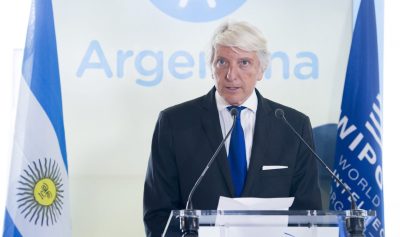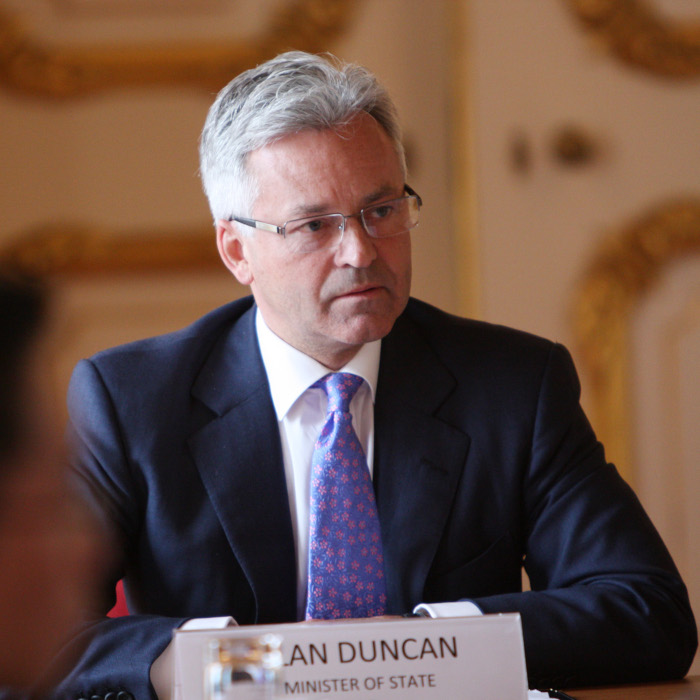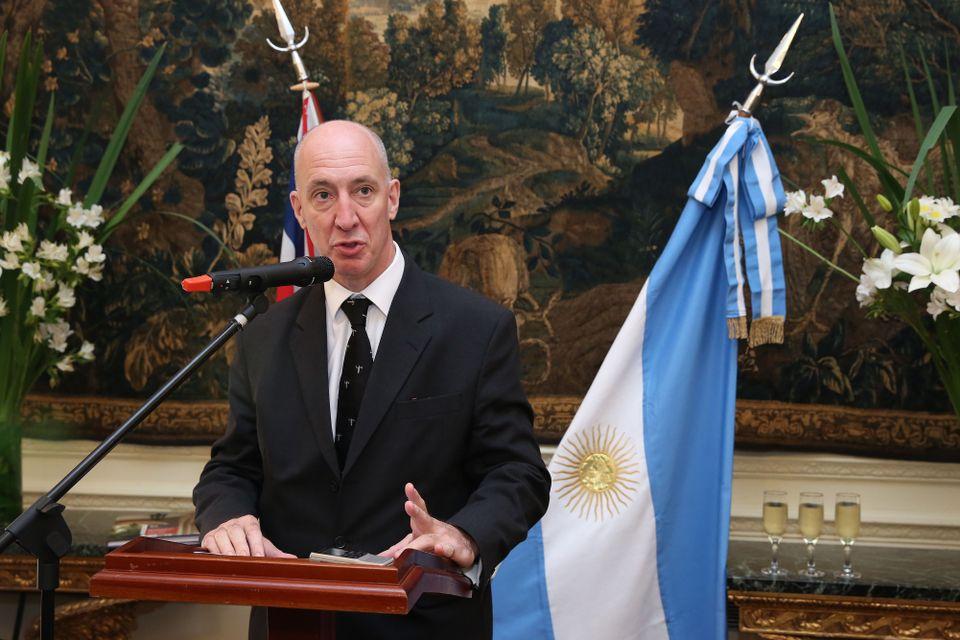Argentine Minister ‘Was Pissed’ When He Agreed Controversial Falklands Deal with UK

All Global Research articles can be read in 51 languages by activating the “Translate Website” drop down menu on the top banner of our home page (Desktop version).
To receive Global Research’s Daily Newsletter (selected articles), click here.
Visit and follow us on Instagram, Twitter and Facebook. Feel free to repost and share widely Global Research articles.
***
Argentina’s deputy foreign minister Carlos Foradori negotiated a widely-criticised deal with Britain in 2016, which agreed to “remove all obstacles” to developing oil deposits around the Falkland Islands—and to add “further air links” from third countries.
The recently published diaries of Sir Alan Duncan, UK foreign minister for the Americas from 2016-19, make new claims about a “landmark” agreement between Britain and Argentina which has been fiercely criticised by the incumbent left-wing government in Buenos Aires.
Tensions between the UK and Argentina increased recently after Declassified revealed Britain deployed 31 nuclear weapons to the South Atlantic during the 1982 war. The two countries are currently marking the 40-year anniversary of the conflict which ran from April to June of that year.
Relations between the UK and Argentina had been “improving” after the right-wing administration of Mauricio Macri swept to power in Buenos Aires in late 2015.
Image on the right: Alan Duncan, UK foreign minister for the Americas from 2016-2019, negotiated the 2016 agreement with Argentina. (Photo: UK government)

Veteran Conservative MP Alan Duncan started as foreign minister soon after, in July 2016, and within two months was in Argentina’s capital Buenos Aires.
In his diaries, In the Thick of It, Duncan notes that on September 12, his first day in the city, he met with the “excellent” new UK ambassador to Argentina, Mark Kent.
“Beneath the [British] embassy residence is a fabulous wine cellar, nicely lit, the walls lined with bottles of Merlot,” Duncan continued. “The setting is nice enough for a meeting and we gather there with Carlos Foradori, the Deputy Foreign Minister.”
“It was a good diplomatic backdrop to some delicate negotiations about securing extra flights into the Falklands – for millions of reasons it requires the cooperation of Argentina for any connections that go via the mainland,” Duncan added. “As one bottle after another somehow moved from the cellar wall to the table, the negotiations improved. At about 2 in the morning we shook hands on an outline deal.”
‘So pissed’
The next day, September 13, Duncan wrote:
“Mark Kent says Foradori had just phoned to say he was so pissed last night he couldn’t remember all the details. Like a proper Brit, Mark reminded him what he had agreed, faithfully and without embellishment. So I think we’re still on track.”
Carlos Foradori disputed Duncan’s recollection of events in the wine cellar, telling Declassified “what was described was completely unrealistic”.
Foradori, a 40-year diplomat who is currently awaiting assignment, said the resulting joint communiqué was “far too long to have been formulated in one evening”.
He added that various levels of sign off from the Ministry of Foreign Affairs “prevent any official or diplomat deciding arbitrarily alone about any of the issues, particularly about such a sensitive one as the Malvinas [Falklands].” He added:
“Each issue analysed in the statement still needed to be validated later on in formal agreements.”
Mark Kent, who is now chief executive of the Scotch Whisky Association, did not respond to Declassified’s questions about the September 2016 night in his embassy’s wine cellar.
‘Landmark deal’
Later on during his second day in Buenos Aires, Duncan added,
“At the Argentina Investment Forum I have a brief encounter with President Macri, who gave his blessing to our efforts.”
He concluded:
“We move up a notch from last night to conduct further (sober) negotiations with Foreign Minister Susana Malcorra which go right down to the wire. At times it looked like we wouldn’t be able to agree, but we emerge with the first positive joint statement since 1999, on trade, security and opening new airlines to the Falklands. A real landmark deal.”
The UK government soon reported that
“a UK-Argentine joint statement has been agreed following a series of high-level meetings in Buenos Aires. It identifies new areas of collaboration and reactivates high-level bilateral consultations”.
It added:
“Deputy Foreign Minister Foradori and Minister Duncan held bilateral talks where the main themes of the bilateral agenda…were reviewed.”
Ten areas of increased cooperation were stipulated. Duncan and Foradori had “resolved to identify investment opportunities in each country with a particular focus on areas such as infrastructure, energy and mining.”
The communiqué also noted that the ministers had “both agreed to strengthen relations between the two armed forces.”
‘Appropriate measures’
The final area of increased cooperation was the most controversial and titled, “South Atlantic”. The statement noted
“it was agreed to take the appropriate measures to remove all obstacles limiting the economic growth and sustainable development of the Falkland Islands, including in trade, fishing, shipping and hydrocarbons.”
These obstacles had included firm Argentinian opposition to the UK prospecting for resources in the South Atlantic.
In 2010, UK company Rockhopper Petroleum made the first significant discovery of oil deposits – estimated to be 242m barrels – off the Falkland Islands. At the time, this “raised hopes among other explorers in the South Atlantic region”. More discoveries came in 2015 and 2016.
Upon becoming President in 2015, Macri appointed the former chief executive of UK oil company Shell in Argentina, Juan José Aranguren, to be the country’s energy minister.
Alan Duncan was himself an oil trader before entering politics, and returned to the industry after stepping down as an MP in 2019.
When applying for approval to take up a job with an oil company after service, Duncan told the UK government that while a foreign minister he had “made no decisions affecting the oil sector except for being informed of the licensing regime which might apply to oil exploration in respect to the Falklands Island [sic].”
‘Serious consequences’
The South Atlantic section of the 2016 joint communiqué also noted that “both sides agreed that further air links between the Falkland Islands and third countries would be established.”
This was again controversial. Argentine policy before the Macri government, and again now, has been to strongly oppose any new flights from third countries to the Falkland Islands.
Currently, there is only one third-country flight, which goes from Chile to the Falklands and stops every two weeks in Río Gallegos in Argentina. Argentine carriers are barred from flying to the islands.
Guillermo Carmona, Argentina’s minister for the Malvinas (Falklands) and the South Atlantic, told Declassified:
“The Macri administration policy, after Foradori’s intervention, could have brought serious consequences for Argentina’s position on las Malvinas.”
He added:
“At the time, we asked for Foradori’s resignation because we believed he did things that were out of line, and had it not been for the parliament’s opposition the consequences could have been very serious.”
Of the revelations related to the wine cellar, Carmona added:
“I’m not at all surprised,” adding “Foradori will have to be accountable for whatever he has said and done.”
Despite some pressure, however, the current left-wing government of Alberto Fernández has so far refused to revoke the 2016 UK-Argentina joint communiqué.
Image below: Mark Kent, British ambassador to Argentina 2016-21, hosted negotiations in the UK embassy wine cellar in 2016. (Photo: UK government)

‘Political consequences’
On the three-year anniversary of what is known in Argentina as the ‘Foradori-Duncan agreement’, Daniel Filmus, now the country’s minister for science, technology and innovation, called the deal “one of the most harmful events to have taken place for our national interest in general and for our historic claim for the exercise of sovereignty over the Malvinas Islands in particular”.
He added that it
“proposed to make concessions to British interests regarding the exploitation of Argentine natural resources in the region and to lower the intensity of the claim for sovereignty.”
It appears the Macri government was aware at the time that it was offering the British more than the Argentinian population were willing to give.
The year after his trip to Buenos Aires, in March 2017, Duncan reported a call he had with then Argentine foreign minister Susana Malcorra. He wrote:
“She speaks very frankly and explains that they just cannot take any further steps to help the Falklands until after the October mid-term elections, because they cannot risk the political consequences.”
Malcorra did not respond to Declassified’s request for comment.
Alicia Castro, Argentina’s ambassador to Britain from 2012-15, told Declassified:
“These new revelations mean the Argentine government should rip up the Foradori-Duncan agreement immediately.”
She added:
“The deal was a massive give away by Foradori to the British, which rightly caused outrage in Argentina. Now we have a better idea of how this present was given, it looks even worse. As a former ambassador, I can say this is absolutely no way to conduct serious diplomacy. It’s time to cancel the agreement in full.”
The UK Foreign Office did not respond to a request for comment.
*
Note to readers: Please click the share buttons above or below. Follow us on Instagram, Twitter and Facebook. Feel free to repost and share widely Global Research articles.
Matt Kennard is chief investigator at Declassified UK. He was a fellow and then director at the Centre for Investigative Journalism in London. Follow him on Twitter @kennardmatt
Featured image: Carlos Foradori, who as Argentina’s deputy foreign minister negotiated a landmark agreement with the UK in 2016. (Photo: Violaine Martin/WIPO)

